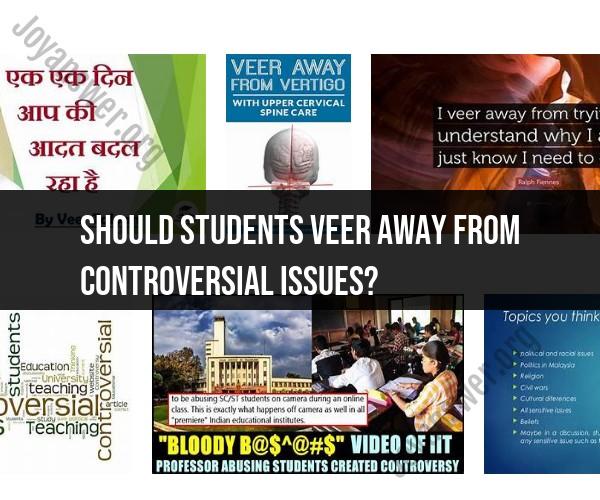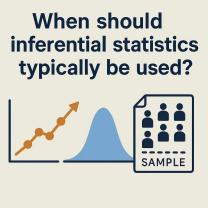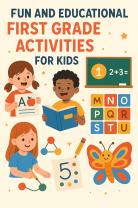Should students veer away from controversial issues?
Whether students should veer away from controversial issues in their discourse is a nuanced question that depends on various factors, including the educational context, the students' age and maturity, the learning objectives, and the guidance provided by educators. Here are some considerations for educators when addressing controversial issues:
1. Age and Maturity: Younger students may not have the emotional or cognitive maturity to handle highly controversial topics. Educators should consider age-appropriate discussions and be mindful of students' readiness.
2. Learning Objectives: Consider the educational goals and learning outcomes of the lesson or course. Controversial topics can be valuable for critical thinking, debate, and developing research and analytical skills.
3. Balanced Perspective: Encourage students to explore controversial issues from multiple perspectives. Emphasize the importance of critical thinking and evidence-based reasoning rather than promoting one-sided viewpoints.
4. Safe and Inclusive Environment: Create a classroom environment where all students feel safe expressing their views without fear of ridicule or discrimination. Set ground rules for respectful discourse.
5. Guided Discussions: Provide guidance on how to have productive and respectful discussions about controversial topics. Teach active listening, respectful disagreement, and constructive feedback.
6. Sensitive Topics: Some topics may be particularly sensitive due to cultural, historical, or personal reasons. Educators should be aware of these sensitivities and approach such topics with care.
7. Curriculum Alignment: Ensure that discussions of controversial issues align with the curriculum and educational standards. Demonstrating the relevance of these discussions to broader learning goals can motivate students to engage thoughtfully.
8. Parental Involvement: Communicate with parents or guardians about the topics being discussed in the classroom. Keep them informed and address any concerns they may have.
9. Support Resources: Make resources available to students, such as articles, books, and expert perspectives, to help them explore controversial issues in more depth.
10. Encourage Critical Thinking: Teach students to critically evaluate sources of information and recognize bias. Encourage them to seek out reliable sources and use evidence to support their arguments.
11. Emotional Support: Be prepared to provide emotional support to students who may find certain topics distressing or triggering. Create an open space for students to seek help or discuss their feelings.
In summary, educators should not necessarily shy away from controversial issues but should approach them thoughtfully and responsibly. Controversial topics can be valuable for fostering critical thinking, empathy, and an understanding of diverse viewpoints. However, it's essential to create a respectful and inclusive learning environment and provide guidance to students on how to engage in meaningful discourse. Ultimately, the decision to address controversial issues should be made with a careful consideration of the educational context and the needs of the students.













